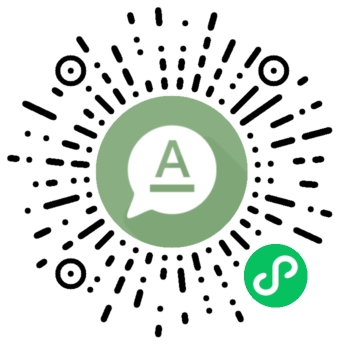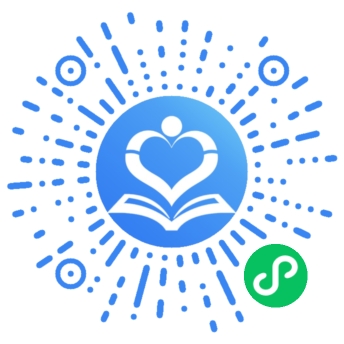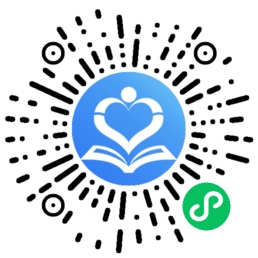中共党史专业介绍
中国共产党历史专业属于法学门类,政治学一级学科,该专业主要研究中国共产党的历史发展、理论政策与实践,探索中国共产党领导中国革命、建设、改革和党的建设的历史经验教训,揭示中国共产党执政规律、社会主义建设规律、人类社会发展规律。
英语单词分类 轻松记单词
bus
英[bʌs] 美[bʌs]
"he always rode the bus to work"
"the busbar in this computer can transmit data either way between any two components of the system"
"the fenders had fallen off that old bus"
"The children were bussed to school"
1.公共汽车;巴士;大客车
Abus is a large motor vehicle which carries passengers from one place to another. buses drive along particular routes, and you have to pay to travel in them.
bus
e.g. He missed his lastbus home...
他错过了回家的末班车。
e.g. They had to travel everywhere bybus.
他们只得乘公共汽车出行。
2.用大客车运送;乘坐公共汽车
When someone isbussed to a particular place or when theybus there, they travel there on a bus.
e.g. On May Day hundreds of thousands used to be bussed in to parade through East Berlin...
过去在五一劳动节这天,数十万人常常乘坐大巴到东柏林游行。
e.g. To get our Colombian visas we bussed back to Medellin...
为了拿到前往哥伦比亚的签证,我们乘大巴返回麦德林。
3.用校车送
In some parts of the United States, when children arebused to school, they are transported by bus to a school in a different area so that children of different races can be educated together.
e.g. Many schools were in danger of closing because the children were bused out to other neighborhoods.
很多学校面临倒闭的危险,因为学生被校车送到其他社区就读了。
1. bus的近义词
1. 公共汽车:比如在学习<>一课,教师可在美工区里摆放小汽车(car)自行车(bike)公共汽车(bus)...等幼儿熟知感兴趣的实物,让这种多姿多彩、直观现实的实际物体在幼儿大脑中留下深刻印象,激发幼儿口语交往的欲望.
2. 母线:立体声返回可以把效果返回到混音,母线(bus)扩展或是作为click-track的输入或是前录音设备的音轨. 18个输出中的每一个都具有XLR平衡连接口和通过返回推子进行传递的信号输入,返回推子是与立体声主要输出部分和前AFL TRS插入式连接口连接的.
3.bus:b-ultrasound scanner; B超
4.bus:broadcast and unknown server; 广播与未知(地址转换)服务器
5.bus:bachelor of university study; 推广大学学士学位
The busman stopped the bus.
公共汽车司机停下了车。
The bus driver asked the passengers to buy tickets.
公共汽车司机要求乘客买票。
Nor can you always use bus interrupts.
你也不可能总是用总线中断。
My bike to the bus station. Then I bus to work.
我骑自行车去汽车站,然后乘早班车去上班。
Shall we walk or go by bus ?
我们步行呢,还是坐公共汽车?
A regular bus service connects the train station with the town centre.
火车站和市中心之间有定时班车。
a bus company'/driver
公共汽车公司 / 司机
a school bus
校车
We were bussed from the airport to our hotel.
公共汽车把我们从飞机场送到旅馆。
Many schools were in danger of closing because the children were bused out to other neighborhoods.
很多学校面临倒闭的危险,因为学生被校车送到其他社区就读了。
To get our Colombian visas we bussed back to Medellin...
为了拿到前往哥伦比亚的签证,我们乘大巴返回麦德林。
He missed his last bus home...
他错过了回家的末班车。
They had to travel everywhere by bus.
他们只得乘公共汽车出行。
On May Day hundreds of thousands used to be bussed in to parade through East Berlin...
过去在五一劳动节这天,数十万人常常乘坐大巴到东柏林游行。
He didn't care much whether he could pass the examination.
他对自己能否登科不是很在意.
I will run you in if the bus isn't going into the town because of the snow today.
如果今天公共汽车因为下雪不送你进城的话,我会开车送你去的.
The bus stop is few yards below the post office.
公共汽车站在邮局向南几码的地方.
She looks like the back of a bus.
她长得非常难看.
It's a five fen ride on a bus.
乘公共汽车去要五分钱.
It's polite to yield up your seat on the bus to an old lady.
在公共汽车上给老太太让座是礼貌的.
Stop fussing about; the bus will arrive on time.
别慌, 公共汽车会准时到达.
I met him many a time in the bus.
我在公共汽车上见过他多次.
The report on the accident exonerates the bus driver from any responsibility.
事故的报告认为公共汽车司机是没有任何责任的.
The people shoved to get on the bus.
人们你推我挤争着上公共汽车.
The school bus leaves at six sharp and won't wait.
校车6点开车,过时不候.
The bus stop is not far from the hospital.
公共汽车站离医院很近.
It's strange that the bus has been delayed so long.
真奇怪,汽车竟耽误这么长时间.
There is still time for you to catch the last bus.
你赶末班车还来得及.
The rude man elbowed me aside and got on the bus ahead of me.
那个粗鲁的家伙把我挤到一旁,抢在我前面上了公共汽车.
To his horror, the bus caught fire.
使他惊恐的是, 公共汽车着了火.
The bus here departs on the hour.
这儿的公共汽车在整点开出一趟.
The bus is not due yet awhile.
公共汽车还要一会儿才会来.
交通
B:You haven’t (taken/ ridden/ been on) thebus before?
你以前没有(坐过/搭过/乘坐过)公车?
A:No, I’m afraid not.
没有,恐怕没有坐过。
交通
B:It’s (faster/ slower/ more expensive) than taking thebus or the subway.
这比坐公车或搭地铁(快/慢/贵)。
A:Oh, o.k.
噢,好吧。
问路
A:Can you tell me the best way to get to (downtown/ the theater/ the river)?
请问去(商业中心/剧院/那条河)怎么走最好?
B:Takebus No. 4.
坐4路公共汽车。
误 Shall we walk or go by a bus?
正 Shall we walk or go by bus?
我在公共汽车上看到了她。误 I saw her on bus.
正 I saw her on the bus.
析 强调交通方式须用by bus,不用冠词。如表示具体位置则可说in/on the bus(在公共汽车上)。
他沿路跑去,上了一辆公共汽车。误 He ran down the road and got into a bus.
正 He ran down the road and got on a bus.
析 “上公共汽车”应说get on a bus,不说get into a bus。“下公共汽车”则应说get off a bus。
Listen, I'm coming back this afternoon, and I'll take abus from the railway station.
听着, 我今天下午就回来, 我会从火车站乘公共汽车。
2016全国卷3
I've got to catch abus.
我得去赶公共汽车了。
2016全国卷1
Sometimes, sitting on abus or a train, she hears only a fragment of a particularly interesting story.
有时,坐上一辆公共汽车或火车,她只听到一个非常有趣的故事片段。
2016全国卷3
四川高考志愿填报方式:1、进入页面;2、修改密码;3、填报须知;4、查看个人基本信息;5、志愿类别选择;6、填写志愿和修改志愿;7、填写或修改志愿结束后,单击页面底部的[保存并提交]按钮,则所填写的志愿数据将得到保存,保存即表示该批次志愿已经提交。
高考成绩一般都会在考后15天左右公布,不过不同省份查询时间有所差别,具体以各省份发布时间为准。并且全国各省份高考成绩公布时间有所不同,不全在同一天,但绝大部分省市都集中在6月24日、6月25日两天公布高考成绩,有些省份会更早一点。
中国共产党历史专业属于法学门类,政治学一级学科,该专业主要研究中国共产党的历史发展、理论政策与实践,探索中国共产党领导中国革命、建设、改革和党的建设的历史经验教训,揭示中国共产党执政规律、社会主义建设规律、人类社会发展规律。
小学教育专业属于教育学门类、教育学一级学科,是我国教师教育体系的重要组成部分。小学教育专业坚持学高为师、身正为范。其主要培养德、智、体、美、劳全面发展,具备专业化的小学教师素养,能在小学及相关行业从事教育、教学和管理等方面工作的复合型人才。
钢琴伴奏作为一门中国普通高等学校的专科专业,属于文化艺术大类中的表演艺术类,修业年限为三年。该专业的目的是培养了解钢琴伴奏的基本理论知识和方法,具备较好的音乐创造能力,从事钢琴伴奏、艺术指导、钢琴演奏、教学辅导等工作的高素质技术技能人才。
影视多媒体技术专业是一门专科专业,属于新闻传播大类中的广播影视类。开设该专业的目的是培养全面发展,具有良好职业道德和人文素养,掌握影视多媒体技术基本知识和技能,具备影视后期制作、影视包装设计能力,从事影视编辑的高素质技术技能人才。
虚拟现实技术应用是一门互联网专业,属于电子与信息大类中的计算机类,基本修业年限为三年。专业主要研究仿真技术与三维计算机图形技术等方面基本知识和技能,具备虚拟现实软硬件平台设备搭建,从事虚拟现实、开发、调试等工作的高素质技术技能人才。
更多内容
关注微信小程序
学路英语小程序
 微信扫一扫,加入小程序
微信扫一扫,加入小程序
学路学习小程序
 微信扫一扫,加入小程序
微信扫一扫,加入小程序
学路高考小程序
 微信扫一扫,加入小程序
微信扫一扫,加入小程序
学路学习APP
 扫一扫,下载app
扫一扫,下载app